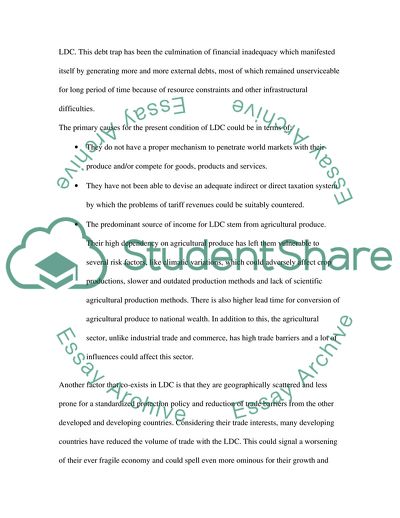Cite this document
(Economics: Least Developed Countries Coursework Example | Topics and Well Written Essays - 1000 words, n.d.)
Economics: Least Developed Countries Coursework Example | Topics and Well Written Essays - 1000 words. https://studentshare.org/macro-microeconomics/1709683-economics-coursework-ldcs-explain-briefly-and-then-evaluate-the-key-issues-in-relation-to-the-developing-nations-concerning-market-led-and-interventionist
Economics: Least Developed Countries Coursework Example | Topics and Well Written Essays - 1000 words. https://studentshare.org/macro-microeconomics/1709683-economics-coursework-ldcs-explain-briefly-and-then-evaluate-the-key-issues-in-relation-to-the-developing-nations-concerning-market-led-and-interventionist
(Economics: Least Developed Countries Coursework Example | Topics and Well Written Essays - 1000 Words)
Economics: Least Developed Countries Coursework Example | Topics and Well Written Essays - 1000 Words. https://studentshare.org/macro-microeconomics/1709683-economics-coursework-ldcs-explain-briefly-and-then-evaluate-the-key-issues-in-relation-to-the-developing-nations-concerning-market-led-and-interventionist.
Economics: Least Developed Countries Coursework Example | Topics and Well Written Essays - 1000 Words. https://studentshare.org/macro-microeconomics/1709683-economics-coursework-ldcs-explain-briefly-and-then-evaluate-the-key-issues-in-relation-to-the-developing-nations-concerning-market-led-and-interventionist.
“Economics: Least Developed Countries Coursework Example | Topics and Well Written Essays - 1000 Words”. https://studentshare.org/macro-microeconomics/1709683-economics-coursework-ldcs-explain-briefly-and-then-evaluate-the-key-issues-in-relation-to-the-developing-nations-concerning-market-led-and-interventionist.


